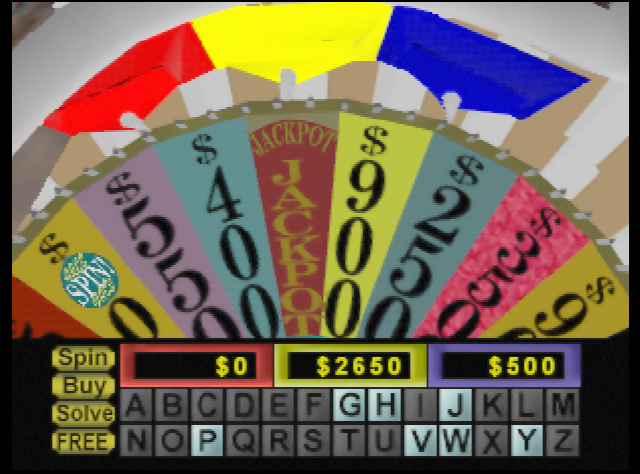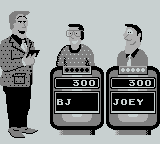Updated 10/12/2025 for grammar and word changes, such as replacing “seventh generation” with “Xbox 360 era” or similar words.
I was relying on Wikipedia’s terminology for console generations, and as time goes it’s not very effective at conveying what period of gaming I’m talking about. Even I frequently confuse myself by using it, so I decided to mention a specific year or platform instead.
Goodness, it’s that time again, huh?
The Portland Retro Gaming Expo has arrived once again, full of cool old video games and lots of vendors willing to sell their wares to folks like me. This time around me and my partner got to peruse stuff on Saturday, while I got to see some friends from out of town. Sunday was me riding solo, but pallin’ around with another friend I don’t see much.
Naturally I was laser focused on deals, and slowly realizing I’m getting old as now I’m seeing booths selling Xbox One, PS4 and even PS5 stuff. Mere years ago I was talking a lot about finding loads of PS2 and original Xbox stuff, but now that’s not the case anymore.
I had three small goals during this trip: Search any discount bin for cheap common games. This paid off in a few places as I got a few fairly notable games in my collection.
The second was to fill the gaps in my game show game library. During the late 2000s-early 2010s, there were a glut of game show games on 360, PS3 and Wii that had not seen since the days of the NES, and I wanted to add some of those to my collection. Even if some of them are not that great, as you’ll soon see.
Finally, I’ve been trying to find peripherals for my Xbox 360, as that console is slowly reaching “retro” status, and I wanna grab some of these peripherals before they start being sold for a ridiculous premium. I got lucky on one of these, at least.
Note this only covers PRGE finds, I will probably have a “everything else I bought” for a future article. But enough preamble. Let’s get into the lineup, starting with Saturday’s finds:

$2 each:
- Get on Da Mic (PlayStation 2)
- American Idol (PlayStation 2)
An auspicious start. Get on Da Mic is basically Karaoke Revolution but for hip-hop. Made by Artificial Mind and Movement (A2M), the studio now known as the Dead by Daylight guys, I was curious about this because rap-based music games are kinda rare, the only other one that comes to mind is Def Jam Rapstar.
From what I gathered from the box is that these seem to hit all the fairly notable hip-hop songs from up to 2004: “California Love,” “Baby Got Back,” “Rapper’s Delight” and even “The Humpty Dance.” I have no idea if these are the originals or covers, as there’s no song credits in the manual, and the back cover uses “As originally made famous by.” Thus it’s entirely possible that an audio production company like Wavegroup Sound did the covers, akin to Karaoke Revolution and early Guitar Hero. Guess I’ll have to find out for myself. Once I find a working USB microphone, that is.
American Idol is a somewhat infamous game. Made by Hothouse Creations, this game is part game show sim, part rhythm game. There’s weird cartoony representations of judges Paula Abdul, Randy Jackson and Simon Cowell, presumably done because the last thing we needed was realistic PS2-quality Simon Cowell.
You’re likely more familiar with the Game Boy Advance version of this game, where people have posted videos of them constantly failing to hit the notes, and funny pitch shifting being used to simulate bad singing, like in this performance for “Waiting for Tonight.” The PS2 version likely has the same features, complete with the bad singing.
I bet it’ll have some funny moments to play through, but otherwise might be forgettable. At least it has support for a dance pad, I guess?
Also, I realized this technically fits the first two categories like a glove: It was in the bargain bin, and technically you could consider American Idol a game show if you squinted real hard. (I treat reality competitions and game shows as separate things, but YMMV.)

$6: Hollywood Squares (Wii)
Ah, here we go. The first of the game show games I found.
Published by Ubisoft and developed by Ludia, these game show games were often not great. For some games like The Price Is Right, they’re fine enough but may have little nitpicky things that diehard fans might dislike. In other cases, like Press Your Luck 2010 Edition and The $1,000,000 Pyramid, those seem to be made on a shoestring budget with little to no care or passion to the show in question, thus they end up being not fun even as a joke with friends. I fully expect this to be in the former category, where it’s a decent enough representation of the show, but has some particularly questionable design decisions.
This one, naturally, is based off the then-recent version of the show that aired from 1998-2003 in first-run syndication. Tom Bergeron reprises his role as host, alongside clips from the show with Martin Mull, Jeffrey Tambor, Kathy Griffin and… Brad Garrett. Everybody else is generic Ludia contestants without any punny names to go by. Which makes it baffling for them to go for the celebrity endorsement as well.
Well, at least it’s not The $1,000,000 Pyramid…
(more…)
























![Jeopardy (U) [BF]_14](https://asecretarea.com/wp-content/uploads/2015/04/jeopardy-u-bf_14.png)








